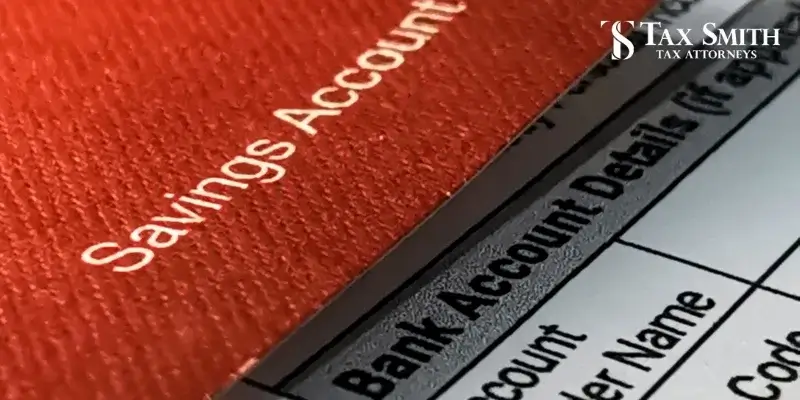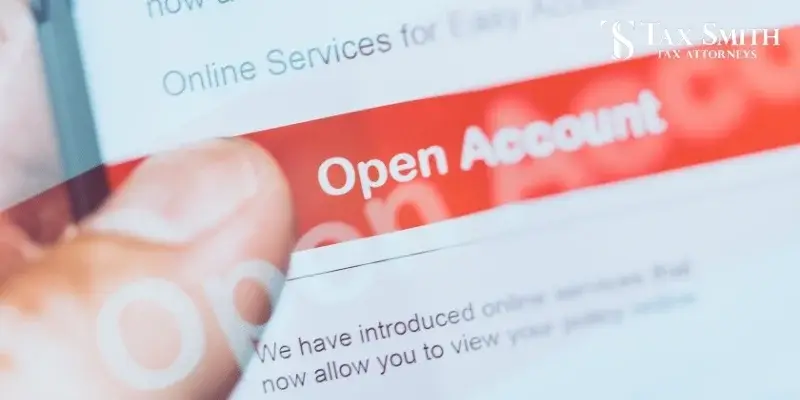1548 The Greens Way – Ste. 4 Jacksonville Beach FL 32250
IRS Bank Account Levy Definition & Examples
When you fail to pay the Internal Revenue Service (IRS), the agency has the authority to place a levy on a bank account, tax return, or other property. A levy is the legal seizure of these assets, and you have a short window of time to correct an error or negotiate with the IRS before you lose those assets.
Facing a bank levy is a stressful situation for anyone, and it can leave you feeling helpless, particularly when the levy impacts most or all of the funds in a bank account. It can help to understand what a bank levy is and what in your life it can affect. If you can work with a bank levy attorney in Jacksonville, they can use their professional experience to help you navigate your tax debt and bank levy.

What Is a Bank Account Levy?
The IRS has several tools for dealing with tax debt, including tax liens, wage garnishment, and other tax penalties. If a taxpayer has significant tax debt with the IRS and has made no move to arrange a payment or payment plan with the IRS, a bank levy is one step the agency may take to secure that debt. A bank levy can prevent you from accessing the funds in your bank account up to the amount you owe in tax debt. A bank account levy is not limited to personal bank accounts. Any account that bears your name, including business and institutional accounts, may have a levy placed on it.
Once a bank levy has been established, you have 21 days until the funds and any interest are turned over to the IRS. This legal seizure of funds will satisfy the tax debt, but it can have a severe impact on your life. During these 21 days, you can’t access the funds that are levied. It’s imperative that you get in contact with a bank account levy attorney during this time, who can review your tax debt and surrounding circumstances, and work towards a solution that is beneficial to you, your financial security, and the IRS’s wishes.
Examples of IRS Levies
In addition to bank accounts, the IRS can seize control of other property and funds to claim an unpaid tax debt. This may be property or accounts that you own and control directly, or it may be your property that is currently used or held by another person or business. Property and assets that the IRS could levy may include:
- Wages and income
- Vehicles, including cars and boats
- Real estate
- Personal property and homes
- Retirement accounts
- Life insurance accounts
- Professional and recreational licenses
- Account receivables
- Commissions
Most individuals rely on their assets from accounts, income, and properties. Levies can put you in an incredibly difficult position.
What Must Happen Before the IRS Issues a Bank Account Levy?
In order for the IRS to legally levy a bank account or other assets, the following requirements must be met:
- The IRS assessed the taxes owed and sent you a Notice and Demand for Payment. It isn’t required that you receive the notice, just that the IRS sends the notice.
- You, the taxpayer, have neglected or refused to pay the tax debt, including penalties or interest.
- The IRS has sent two follow-up notices to you. These are a Final Notice of Intent to Levy and a Notice of Your Right to a Hearing, which must be present at least 30 days before assets or accounts are levied. These notices may be sent through the mail, provided to you in person, or left at your home or business.
- If there are third parties involved with any levy, such as a bank or employer, the IRS must send you notice of Third Party Contact to inform you that they will be contacting these parties while collecting or calculating your tax debt.
The amount levied cannot exceed the tax debt, penalties, and interest. If you receive notice of a levy, you need to take action. Failing to address tax debts does not make them go away. The sooner you talk with a tax attorney, the better your chances are to negotiate a resolution with the IRS to settle your tax debt. A tax levy can have a harmful effect on your life. An attorney can help you negotiate with the IRS, whether you received notice of a levy or are facing the impact of one.

FAQs About IRS Bank Account Levy
What Is an Example of a Levy From the IRS?
A levy is the legal seizure of an asset that you own or have interest in. This includes bank accounts, including individual, business, and institutional accounts. In addition to bank account levies, the IRS may seize other assets that you have interest in, whether it is held by you or by another party. This includes the seizure of properties like your home, cars, boats, or other vehicles. It also includes assets like your wages, rental income, life insurance value, commissions, retirement accounts, or dividends. The IRS may seize the cash value from accounts or seize and sell physical assets.
What Accounts Can the IRS Not Touch?
Any bank accounts that are under the taxpayer’s name can be levied by the IRS. This includes institutional accounts, corporate and business accounts, and individual accounts. Accounts that are not under the taxpayer’s name cannot be used by the IRS in a levy.
Levies can impact property and assets other than accounts. However, there are some assets that are exempt from IRS levies. These include personal items under a certain value or clothes and educational books that are essential to the taxpayer and their family. It also includes unemployment benefits, certain pension payments, workers’ compensation, any portion of income required for court-ordered child support payments, and certain disability benefits.
At What Point Will the IRS Levy Your Bank Account?
If a taxpayer has neglected or willfully failed to pay a tax debt, the IRS may decide that a bank account levy is the right action. It must be preceded by certain notices, including a Final Notice of Intent to Levy. The IRS may only levy up to the amount owed in tax liability.
How Often Can the IRS Put a Levy on Your Bank Account Each Month?
The IRS’ statute of limitations on debt collection is ten years. Until that deadline, there is no limit on how often they are able to place a levy on your account. As long as the amount levied does not exceed the tax debt you owe, the IRS can levy any funds needed.
Contact TaxSmith, LLC Today
At TaxSmith, LLC, we have years of experience with tax law. Contact our team today.
Locations We Serve
- Alabama
- Arizona
- California
- Colorado
- Connecticut
- Delaware
- District of Columbia
- Florida – HQ
- Georgia
- Idaho
- Illinois
- Indiana
REQUEST A CONSULTATION
Please fill out the Contact Request Form and a Tax Attorney/Paralegal will call you
to discuss legal representation or to schedule your free initial consultation




